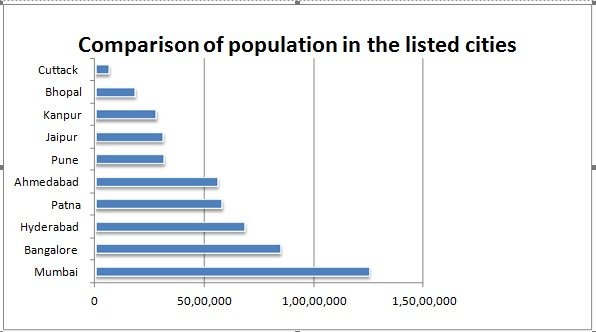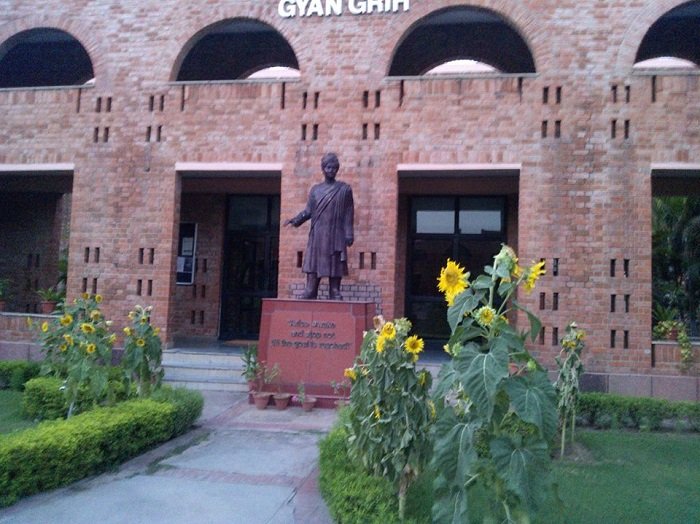The decision of the central government to allow 51% FDI in multibrand retail in India has opened up a pandora’s box of possibilities for the sector. Even Mr. Kishore Biyani, regarded as the pioneer of retail boom in India, has suggested in an interview that the actual movement in the retail industry will start now and expects investments over 7 billion USD in the sector over the next 10 years.
So what does it hold for the consumer- people like you and me ? The biggest change that can happen is we might soon be going to Starbucks, buying garments from GAP and shopping from Carrefour. Major world players like these were so far confined to the back end of the retail operations. However with the change in government regulations, the entry of players is going to bring in lots of competition in the organized retail space. The valuation of the Indian retail industry is expected to be around 400 billion USD and offers a lucrative pie to all these players. The presence of these players will lead to leaner supply chains – leading to large number of choices for the customer at lower prices. The impact will be felt even more in agro-commodities as they will be sourced directly from the farmers and sold to consumers, leading to lower prices due to removal of middlemen from the supply chain. Food prices have been a major cause for the double digit inflation rates that India is witnessing at the moment.

However, while industry experts have hailed it as nothing less than a boon as it comes at a time when India’s growth is showing signs of a possible slowdown, the policy comes with a large number of conditions. The policy will apply only to cities having population of 1 million or more. At this moment the number of cities in India satisfying this is 42 and the number is expected to go up to 70 by the year 2030 according to a McKinsey report. Moreover the minimum investment has to be 100 million USD , at least 50% of which has to be in the back end- which does not include land investment or rental payments. In addition to this government will have the first right to farmer’s produce and the foreign players have to source 30% of their purchase from SMEs.
The most interesting condition though was the fact that states will be free whether to accept or not to accept the policy . Let us consider the implications of this: India has the highest store density in the world with 11 stores per 1000 persons and retail sector remains one of the highest employment generators contributing nearly 22% of GDP. The entry of foreign players will cast serious doubts over the fate of these small retail outlets and only those that can improve their supply chain will survive the onslaught. Moreover while the FDI will generate jobs, the number of people losing jobs as a result ( working in unorganized retail) will be many times over that number. Being a democracy, many states will oppose it and refuse to implement it citing impact on election results: BJP, Left Front and also UPA allies TMC and DMK have already opposed the move- so implementation in states where these parties are in power or have considerable influence is going to be a difficult process.
Perhaps the only way out is implementation of a minimum price condition, whereby retailers will not be allowed to sell below a certain price. Even countries like Germany have such policy in place and there is no reason why India should not have such a policy in place to protect its local retailers. Moreover micro enterprises like small retail shops should be issued loans at low interests to upgrade their facilities by the government. So will FDI in retail actually lower inflation? Based on a research, in India we pay 2.5 times time the price paid to farmer for agriculture produce compared to 1.5 times in regions where there is large organized retail. However, we have not yet seen the socio-economic impact of FDI in retail. Till that moment , double digit inflation remains a grim reality !
You might like reading:

Runners-up : IMM Case Challenge 1 Solution by Ambati Avinash and V Nanda Kishore
The main cities competing for the test marketing are Mumbai, Hyderabad and Bangalore. But we consider HYDERABAD must be the test market because it can represent the whole Indian market. Bangalore and Mumbai might not represent the whole country because of their extreme and deviant kind of people living in those cities. Hyderabad has an even distribution of income level […]

Zindagi Gulzaar hai..Even in B-school
The wind in my hair, the soft, moist grass cushioning my head, the velvet tapestry of sparkling stars becomes the stage as the shape shifting monsoon clouds conjure up myriad stories in my head. The moon gleams down its silver light as the lyrics of a popular Bollywood number from a friend’s phone float the zephyr that is as mystic […]






























